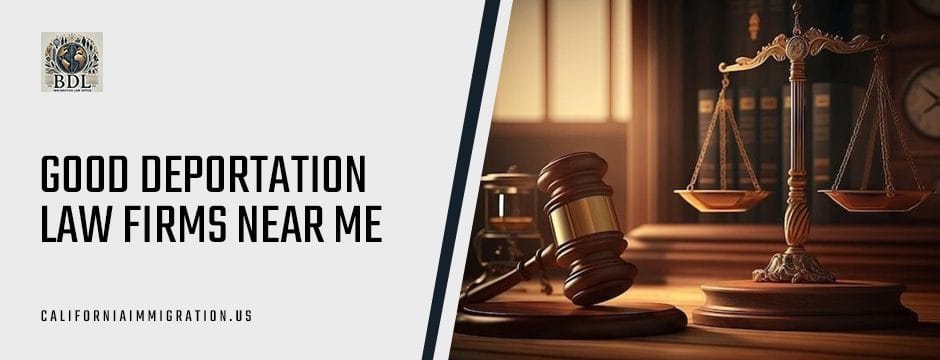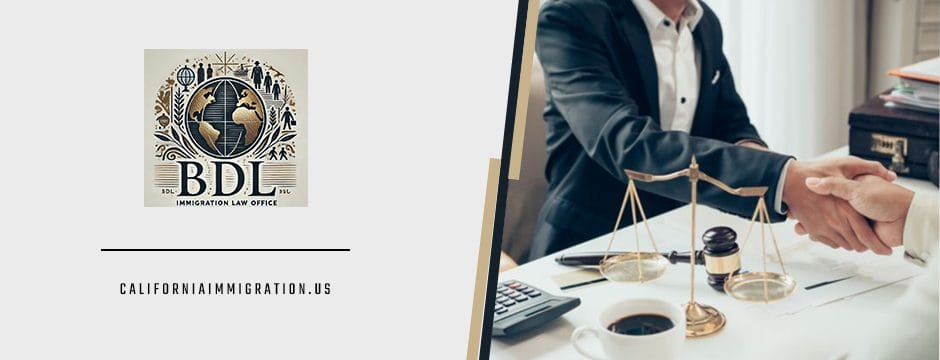When you get your Green Card, you may believe you are safe and secure in the United States. You might think nothing can threaten your legal status. But that is not always true. The law has many grounds that can make you removable. Crimes, fraud, certain medical issues, or even simple mistakes can put you at risk of deportation. Once you receive a Notice to Appear (NTA), removal proceedings begin. At that moment, your life in the U.S. can change. This is why hiring good deportation law firms near me becomes one of the most important steps to protect your future.
Why Green Card Holders Are Still at Risk
Many immigrants assume permanent residency means complete protection. However, U.S. immigration law has strict rules. If you are accused of committing a crime, the government may try to deport you. Even if you did not commit a serious offense, things like fraud, misrepresentation, or failure to disclose information on your application can cause trouble.
For example, something as simple as not checking a box correctly or forgetting to mention a ticket could be labeled as fraud. Crimes such as assault, battery, or domestic violence are considered crimes of violence. These acts can quickly lead to removal proceedings. Aggravated felonies are even more serious. They carry a very small chance of relief in Immigration Court.
So, if you think having a Green Card protects you from removal, think again. The government has many tools to try to take it away. That is where legal representation becomes essential.
The Role of a Deportation Lawyer
Once you are in removal proceedings, you are facing an experienced government attorney who wants to deport you. You should not face that fight alone. When you search for good deportation law firms near me, you are looking for lawyers who understand cancellation of removal, waivers, appeals, and all forms of relief available in court.
A strong deportation lawyer can:
- Analyze if your crime falls under crimes of moral turpitude.
- Check if aggravated felony charges apply.
- Argue whether misrepresentation claims are valid.
- Seek medical or humanitarian waivers where possible.
- File for cancellation of removal when eligible.
In many cases, the lawyer will also look for options outside the Immigration Court. Sometimes, getting criminal relief can make you eligible for immigration relief. This is why having a team that knows both sides of the law makes such a difference.

Crimes of Moral Turpitude and Aggravated Felonies
You may have heard the phrase “crime of moral turpitude.” It refers to acts considered vile or depraved against society. Theft, fraud, and many violent offenses often fall into this category. If you are charged with such crimes, immigration judges often see them as a reason to remove you.
Aggravated felonies, on the other hand, are the most damaging. Drug trafficking, violent crimes, and certain fraud offenses are examples. They can close many doors in Immigration Court. Relief is limited, but a deportation lawyer can still look for legal strategies.
This is why having good deportation law firms near me on your side can mean the difference between being removed and finding a path to stay.
The Notice to Appear (NTA)
If you receive an NTA, it is the official start of removal proceedings. Many immigrants feel lost when they get this document. You may not know what it means or what steps to take. Missing deadlines or failing to respond can result in an automatic order of deportation.
A lawyer can explain what the charges mean and how to respond. They can also prepare you for hearings before the judge. With proper representation, you improve your chances of fighting the case successfully.
Fraud, Misrepresentation, and Medical Grounds
Not all removals are based on crimes. Sometimes, fraud or misrepresentation is the issue. Immigration officers may argue that you hid something or gave false information. Even small errors can be interpreted as fraud.
Medical grounds also play a role. If you are diagnosed with certain diseases, the government may decide you are inadmissible. While this seems harsh, the law allows it. However, waivers are often available. An attorney can guide you through the process of applying for them.
Why You Need Local Expertise
Searching for good deportation law firms near me ensures you find attorneys who understand local courts and judges. Every immigration court has its own style and pace. Local lawyers know what arguments tend to work and which strategies are less effective. They may also have relationships with experts, such as doctors or psychologists, who can strengthen your case.
Similarly, if you are a victim of abuse, other areas of immigration law may overlap with deportation defense. This is where connecting with a VAWA attorney in Texas can be critical. Victims of domestic violence can file a VAWA self-petition to gain protection and legal status without relying on their abuser. If you are in Texas and also facing removal, a lawyer experienced in both deportation defense and VAWA petitions can combine these strategies for your benefit.
VAWA and Deportation Defense
A VAWA attorney in Texas not only helps with self-petitions but also prepares supporting evidence, personal declarations, and waivers that can protect you in court. Many VAWA cases involve domestic violence, and crimes of violence are often the very reason someone is placed in removal proceedings. Having one attorney who can handle both parts of the case makes your defense stronger.
These attorneys work with confidentiality, which protects you from your abuser finding out about your immigration steps. They also connect you with local support systems that help rebuild your life. For immigrants in abusive situations, this is a lifeline.
If you are in another state but dealing with abuse, learning from how a VAWA attorney in Texas handles such cases can guide you in finding the right lawyer in your area.

Winning Your Case
Winning a deportation case is not simple. It depends on many factors—your criminal history, family ties in the U.S., length of residence, and whether you qualify for relief. However, the one factor you can control is who represents you.
Without a lawyer, you may not even know about the forms of relief available. With the right lawyer, you have someone fighting for you every step of the way. Whether it is cancellation of removal, applying for waivers, or filing appeals, California Immigration can open doors you did not know existed.
Conclusion
Deportation proceedings are one of the most stressful experiences any immigrant can face. The government will use every ground available to remove you. Crimes, fraud, medical issues, or even small mistakes can put your future at risk. That is why finding good deportation law firms near me is not just a choice—it is a necessity.
If you are also a victim of abuse, connecting with a skilled VAWA attorney in Texas can provide added protection and a new path to legal status. Your case deserves a lawyer who understands the law, cares about your future, and fights for your right to stay in the United States.
For immigrants in California, California Immigration is a trusted name in fighting deportation cases and protecting families.
Are you ready to take the first step toward protecting your immigration status?




